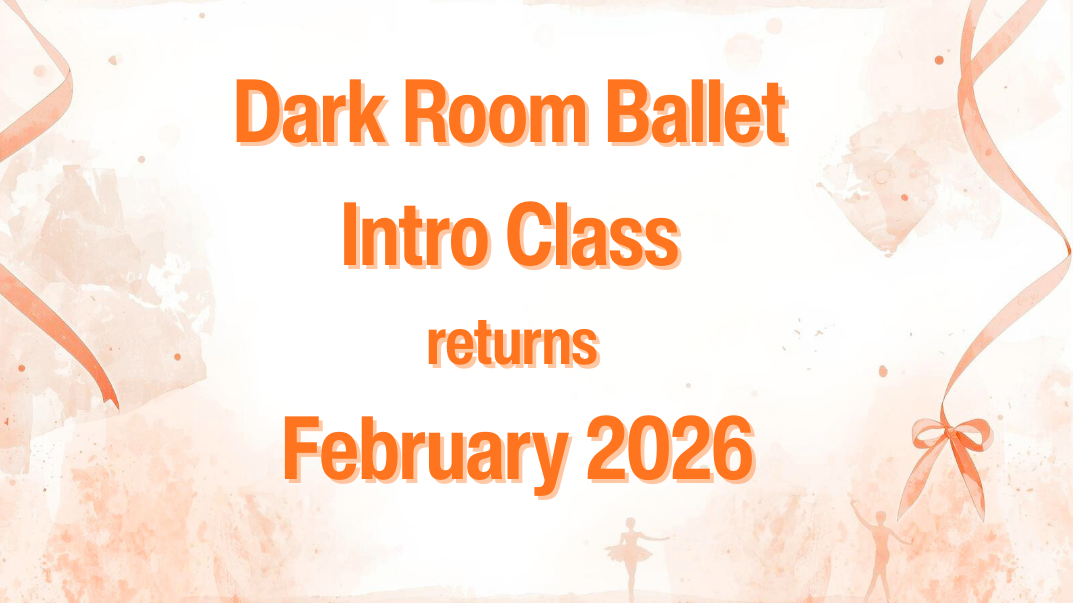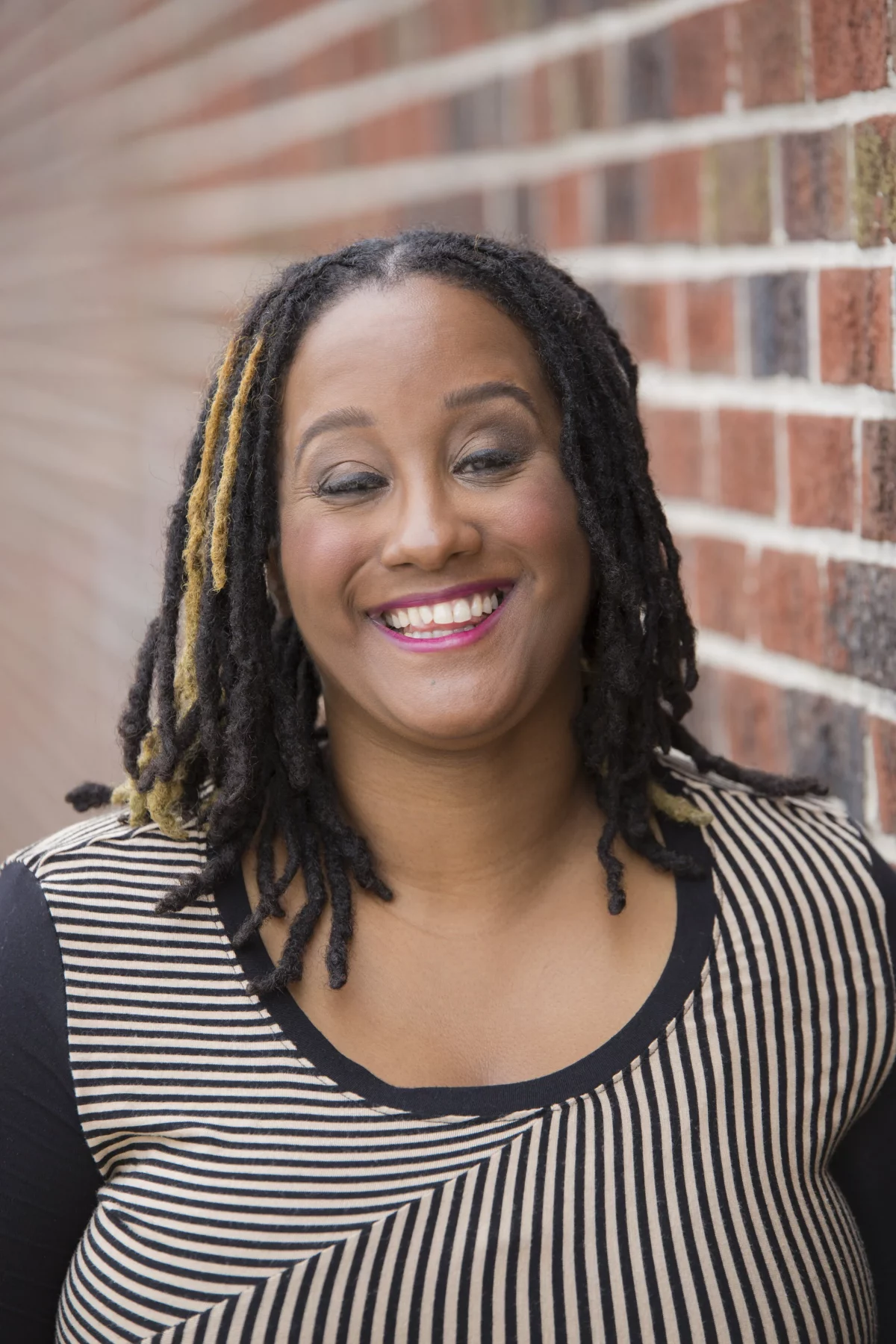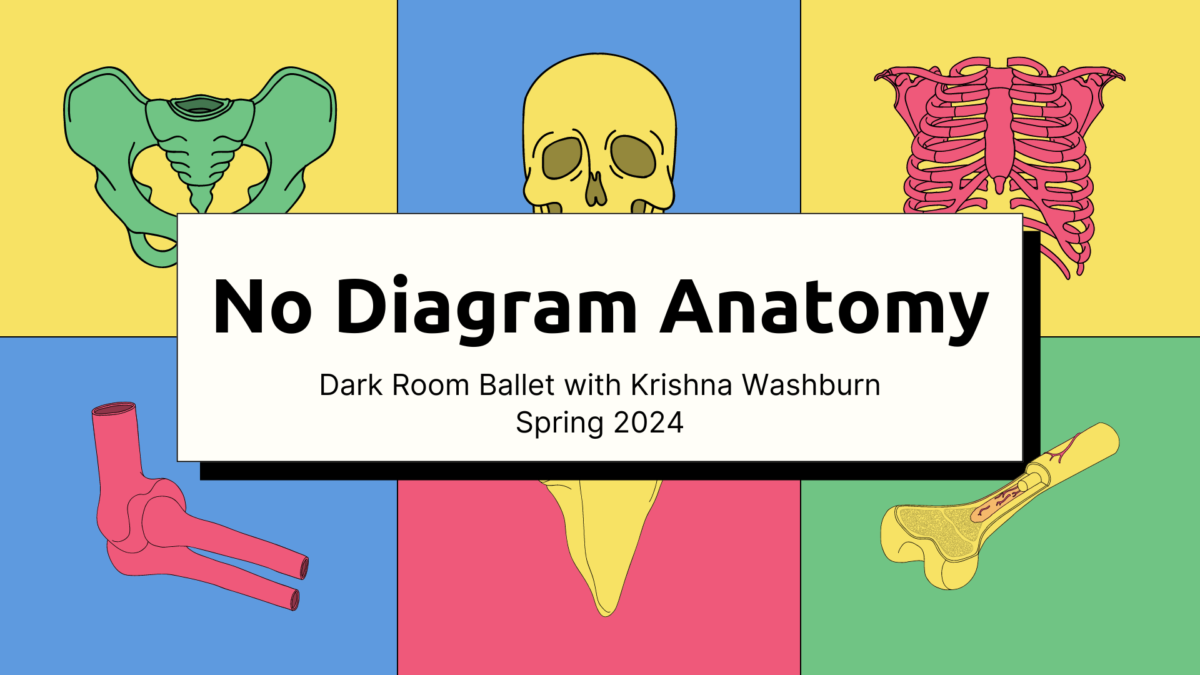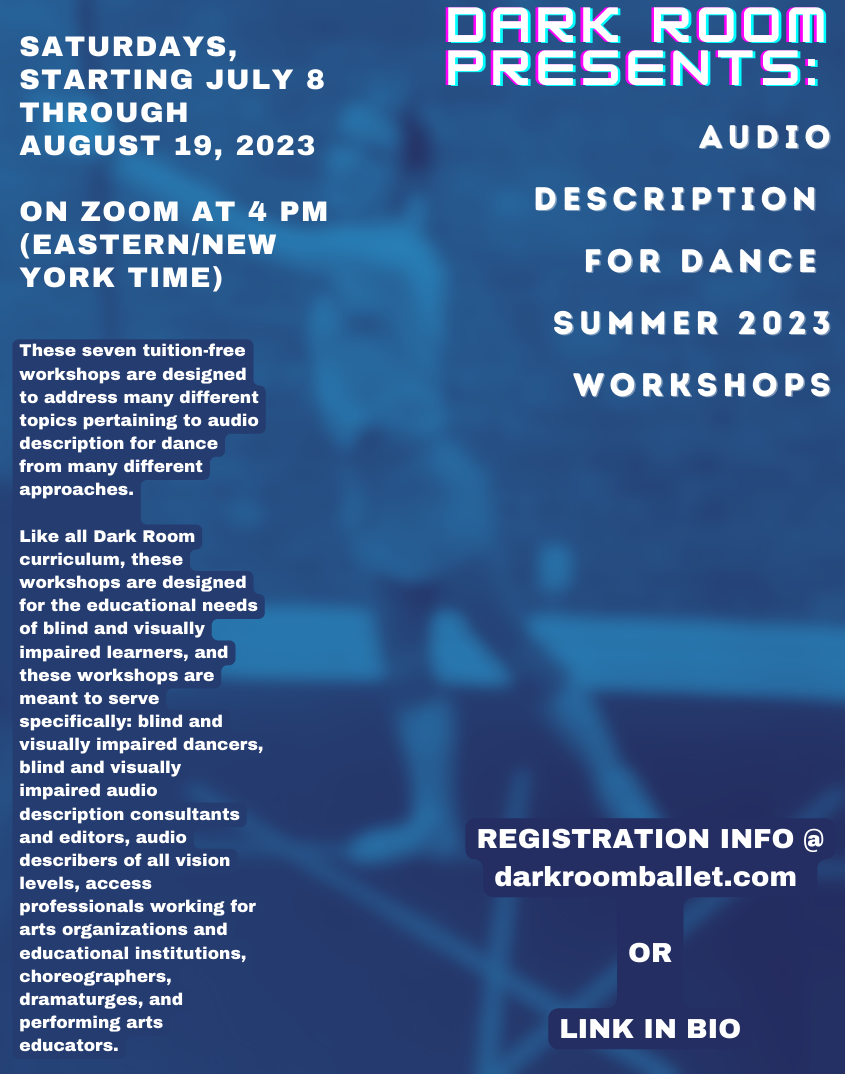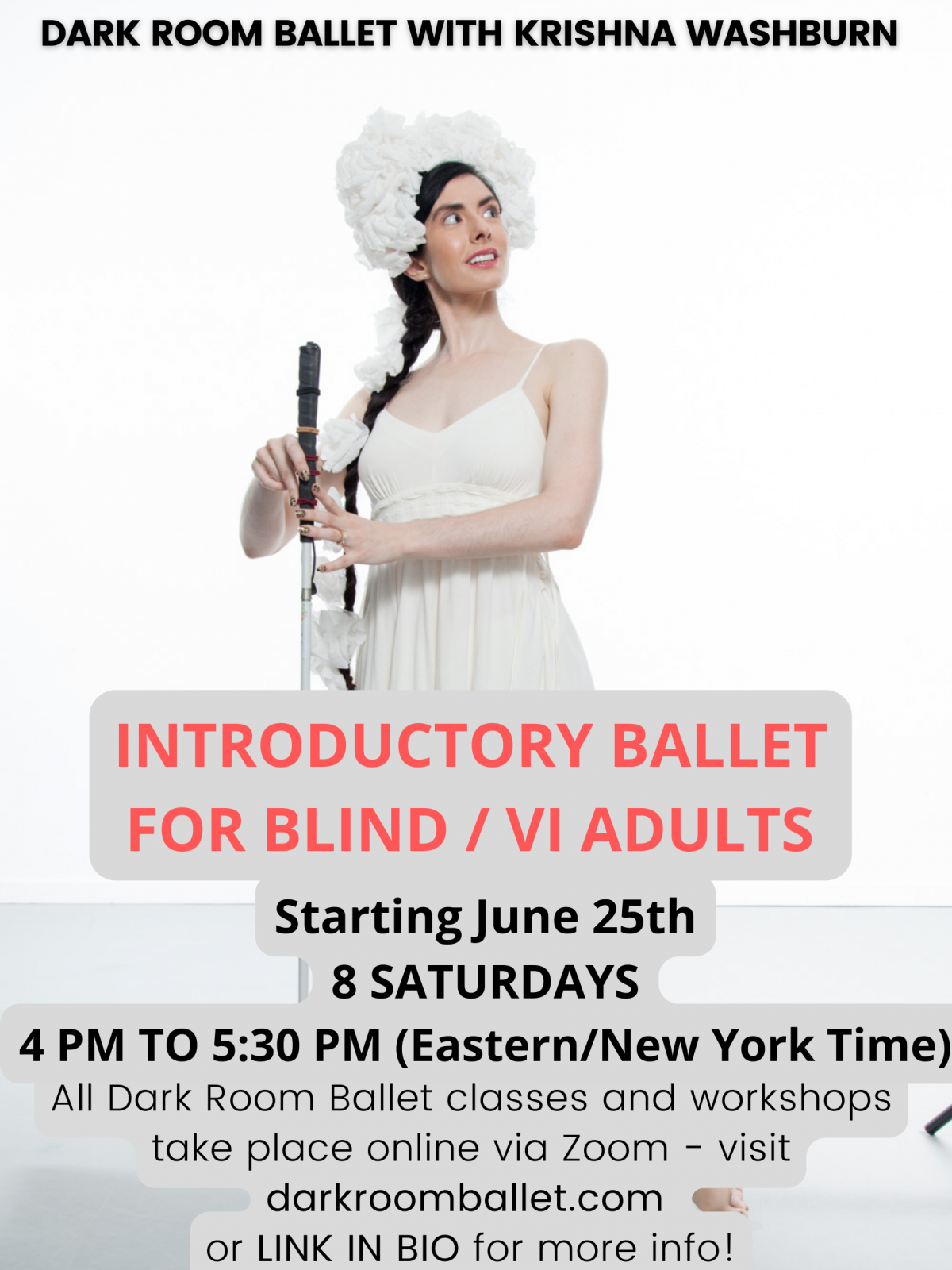Supporting Dark Room Ballet Means Supporting Dance Education and Opportunity for Blind Artists and Audiences
Dark Room Ballet is celebrating its sixth anniversary, which means…
- Krishna has taught almost 300 Open Level Classes for adults on Monday nights
- 500+ adults have studied ballet and traditional blind dance techniques with Krishna in Open, Intro, and Pro level classes
- Krishna been offering audio description workshops and courses tuition-free since 2022
- We’re revving up for our Fourteenth Cycle of the Dark Room Ballet Intro Class for blind and visually impaired adults that have not had the opportunity to study dance before
Dark Room Ballet is the only place where blind and visually impaired adults receive high-quality, pre-professional and professional level education from educators that share their disability – tuition free. And there’s so much more than ballet happening at Dark Room Ballet!
Dark Room Ballet is now a driving force for high-quality audio description for dance
- Audio Description Consultation services are expanding globally because of the efforts of Dark Room Ballet and the Telephone Film
- With support from Dark Room Ballet and Telephone, Pacific Northwest Ballet created their first audio description program with audio describer Alyson Osborn — it’s now a model for large dance companies starting fully integrated audio description programs.
- American Ballet Theater / ABT Rise produced their VERY FIRST audio described dance video for World Ballet Day on November 12. Dark Room Ballet donated many, many volunteer hours to ABT to ensure audio described media in its catalog. Three Dark Room Ballet-trained audio describers got paid for this project…
- And on December 13th, we will showcase audio described dance on film with Yeah, It WAS Good!
Dark Room Ballet continues to support, train, and consult with independent artists and dance companies as they create audio described dance projects. Some of our collaborators include: ShaLeigh Dance Works, Jo Troll, Emilee Lord, Toby MacNutt, and so many more!
Your donation will enable us to expand opportunities to train a new generation of audio describers of dance
Dark Room Ballet has Increased its Faculty with the Dark Room Collegium in 2025
Dark Room Ballet intends to build a full faculty of blind and visually impaired educators which we launched with Collegium 2025, a series of classes and workshops taught by the world’s best blind and low-vision movement and arts educators, sharing their artistry and knowledge with our community. Educators in 2025 include:
- Shannon Brooks teaching improvisation
- Hannah Werbel teaching ballet musicality
- Davian “DJ” Robinson teaching choreography and tactile map making
- Alex Bulmer teaching vocal skills for both audio describers of dance and self-describing dancers
- Christopher “Unpezverde” Nuñez and Kayla Hamilton opening windows into their artistic practices as choreographers!
Expanding opportunities in 2026:
There are so many more blind and visually impaired arts educators that we want to bring into our community as rotating faculty. In fact some are already expressing interest in teaching in 2026:
- Alex Bulmer, Award-winning playwright and actor, wants to offer regular classes in vocal skills for audio describers and self-describing dancers
- Valentina Bertani, the world’s first blind dance teacher certified in the Simonson Jazz dance technique, is interested in bringing the joy and vibrance of jazz dance to Dark Room Ballet for the first time
Your donation will enable us to expand this important access for both blind learners and blind arts educators
Expanding our work requires more resources
Increased Administrative Support
Suzanne Joyal has joined our team working on community outreach and institutional organization. As Dark Room Ballet continues to grow, it’s clear that we’ll need even more administrative support starting in 2026. Roles we need to fill — and afford:
- Audio and video editing and archiving
- Fundraising support
- Support for faculty
Your donation will help us hire the support staff we need to grow
Upgrades and Equipment
In order to support our growth, we’re going to need…
- Lav mic sets for our educators
- Hard drives and cloud storage for our class and workshop videos
- Database software for maintaining our enormous database and for sending out newsletters like this one
- Acoustic tiling for Krishna’s teaching space to create the *ideal audio environment* for blind and visually impaired learners
- Track lighting for Krishna’s teaching space to reduce glare and visual interference to support our low vision learners
- And who knows what else? Dance floors? Webcams? We’ll know as we go
Your donation will help us purchase the tools to expand access for blind students and artists
Support blind and visually impaired educators, learners, and artists this year and always by supporting Dark Room Ballet
Consider making a monthly donation to Dark Room Ballet this #GivingTuesday, or a one time donation —
What can your donation do?
- $10 a month pays for our DropBox storage
- $25 a month pays for our Pro Zoom account
- $100 a month pays for social media posts for upcoming courses
- $250 a month pays for Rode lav mic sets for educators
- $450 a month pays for a workshop with a new teaching artist
- $1000 a month helps us hire grant writers in 2026
Love always,
Krishna, Alejandra, Suzanne, Andre, Jonathan, and the whole Dark Room Ballet Community!
